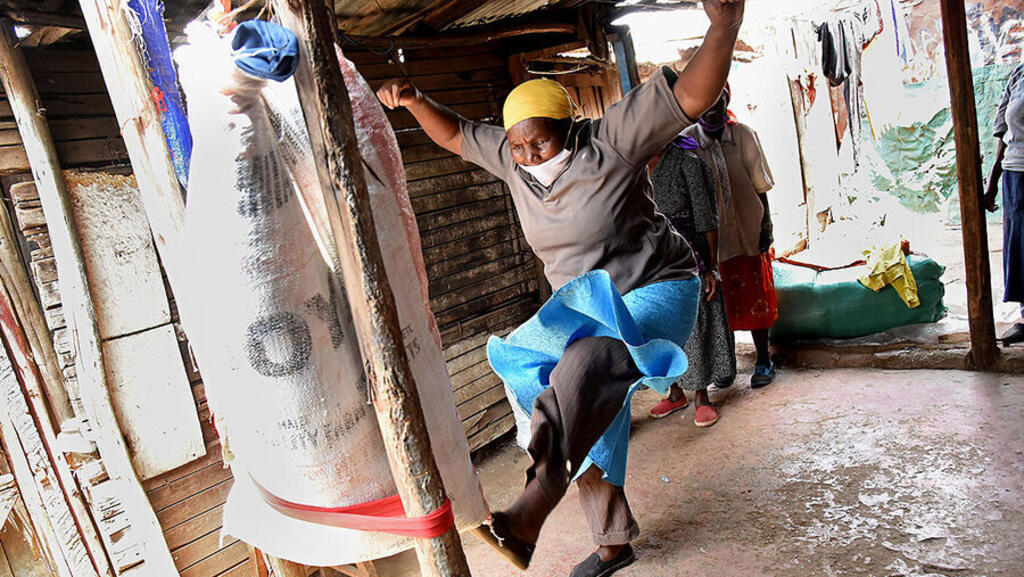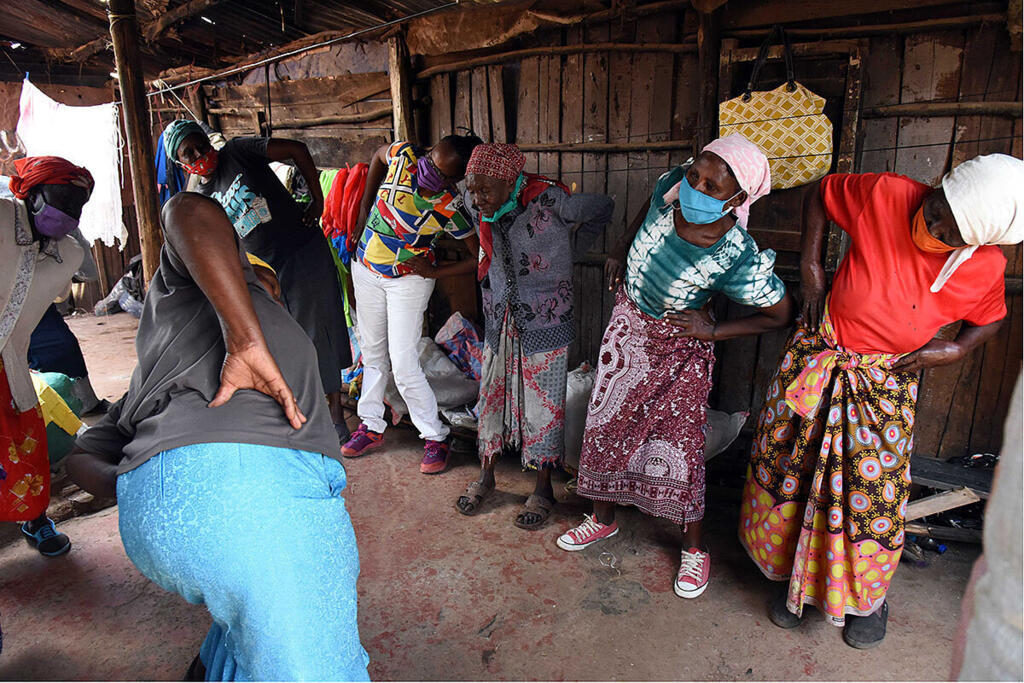
In the heart of Korogocho, a Nairobi slum where corrugated metal homes lean wearily against each other, a group of elderly women gathers every morning in a small community hall. Some use canes, others steady themselves on their friends' arms, but all share the same determined focus. They're not here to gossip or pray, they're here to learn how to fight.
A makeshift punching bag stuffed with rags hangs from the rafters. The women form a circle around it, colourful khangas wrapped tight, bare feet planted firmly on the earthen floor.
Beatrice Nyariara, who is in her seventies, calls out: "Remember, grandmothers, defend yourselves!"
For years, elderly women in Korogocho were targeted for rape and robbery, made vulnerable by a deadly myth that older women were "safer" victims less likely to carry HIV.
With few local police officers and slow response times, help rarely arrived when needed.
The violence seemed unstoppable until 2007, when Beatrice and the others began learning martial arts from visiting instructors.
The techniques they use blend karate, kung fu and taekwondo, stripped down to the essentials: quick strikes, joint locks, targeted kicks. They don't aim for flashy moves, but for practical techniques that create escape opportunities.
The women named their group Shosho Jiking – meaning "Grandmother, defend yourself".
'Beauty exists everywhere’: Ballet builds hope for future in Nairobi slum
'He thought I was helpless'
The women practise palm strikes to the nose, precise blows to the collarbone and swift kicks to the groin. Every move ends with a fierce chorus: "No! No! No!" – to stun attackers and alert neighbours.
At first, many of the women questioned whether their ageing bodies could handle the strain. Joints ached. Muscles protested. But week after week they returned, growing stronger in body and spirit.
Gradually, attacks on elderly women in the neighbourhood declined. Word spread: these grandmothers knew how to fight back.

After a brutal assault left Jane Waithiegeni HIV-positive, she withdrew from community life for years, trapped in isolation and shame.
Finding the karate group marked a turning point. Today, she instructs women of all ages through the Ujamaa Karate programme, teaching them that their bodies are worth defending.
Hannah Nyakio smiles when she recalls the night an intruder broke into her home. "He thought I was helpless," she says. A quick kick to his nose and a knee to his groin gave her time to escape and raise the alarm.
Then there's Rebecca Wambui, who at nearly 100 years old walks to training with her cane but delivers sharp, accurate strikes. Her presence alone reminds the group that strength is about more than muscle.
The women carrying the burden of Kenya’s rural healthcare on their backs
Beyond self-defence
The karate lessons too have evolved into something much bigger. The women have formed a chama – a traditional savings club where small contributions help cover medical bills, funeral costs or expenses for the grandchildren that many are raising alone, after they were left orphaned by AIDS.
In a community where poverty and crime frequently tear families apart, the karate grannies have created their own safety net, protecting the children from abuse and gang recruitment.
The Kenyan company turning trash into cash
The sessions also help maintain their mental health, as well as the physical. Between drills they joke with each other and share news and recipes. What began as survival training has become a source of joy, wellness and sisterhood.
They also challenge assumptions about gender and age. In a society where older women are often dismissed as powerless, these grandmothers prove that vulnerability isn't an inevitable part of ageing.







